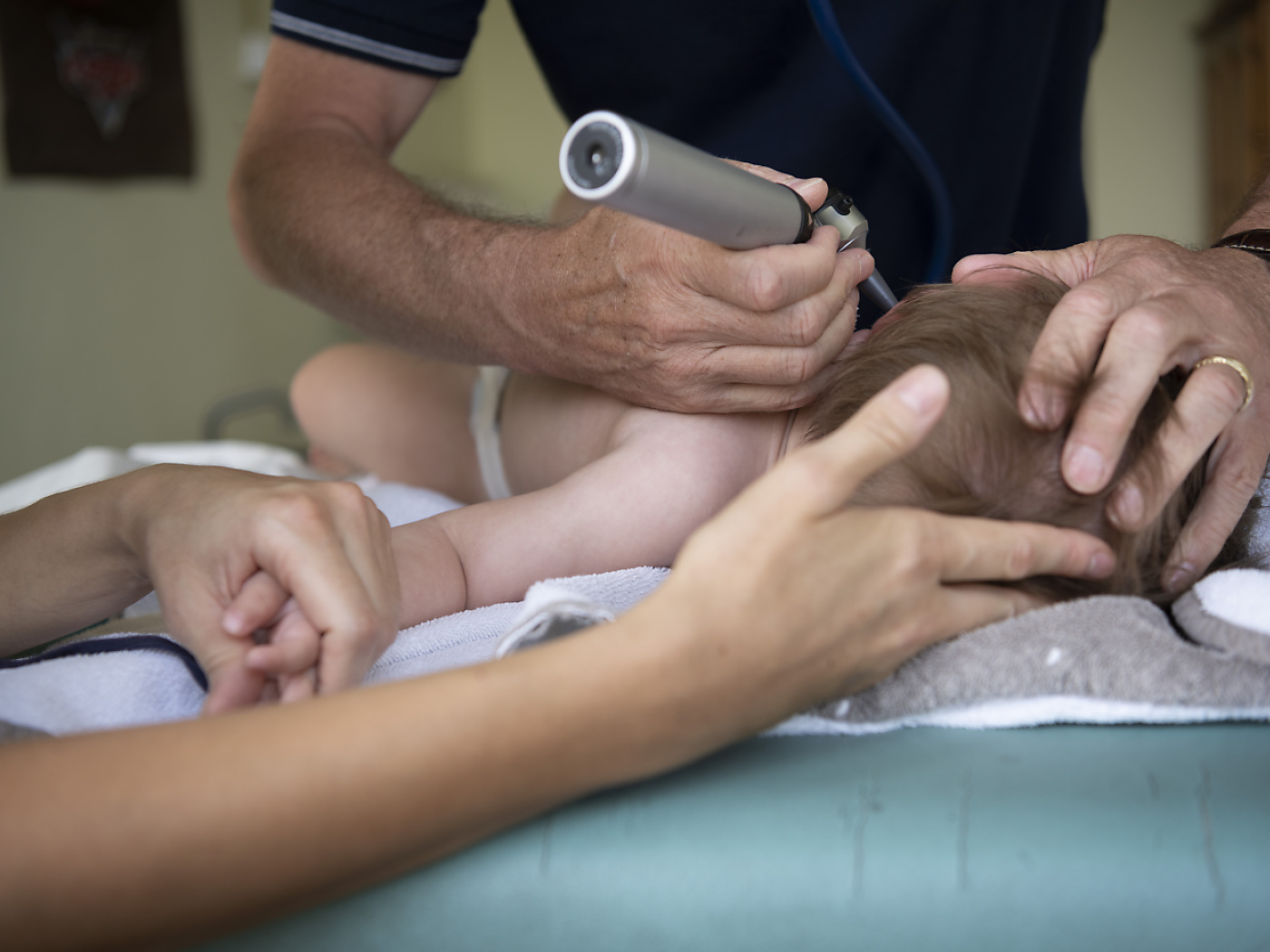
Switzerland faces shortage of paediatricians

Switzerland is facing a shortage of paediatricians, which could mean inadequate care for children in rural regions, a medical association has warned.
+Get the most important news from Switzerland in your inbox
Due to a lack of data, it is difficult to quantify the shortage throughout Switzerland, said Marc Sidler, President of the Professional Association of Paediatricians, in an interview with Tamedia. It is estimated that there is a shortage of several hundred paediatricians.
The number of children and adolescents being cared for by general practitioners is not recorded. There are also too few of them in rural areas, said the association president. It is also difficult to find a successor for a practice in paediatrics. In urban regions, cooperation – for example with a nearby children’s hospital – is easier.
The problems in finding a successor are also linked to the younger generation’s desire to work part-time, said Sidler. Paediatricians work an average of four days a week, while female paediatricians work three days. The proportion of women in paediatrics is two-thirds. More trained paediatricians are therefore needed, said the association president.
The association is hoping for more support from the Federal Office of Public Health. “You tend to get the impression that obstacles are constantly being put in your way – with all the regulations, checks and inspections in which you can see no added value,” said Sidler. The time spent on this is lost for the patients.
An example of this is the bureaucracy surrounding medical certificates. Depending on the employer, a certificate is required very quickly these days, said Sidler. Apprentices sometimes need a certificate for sickness-related absences on the very first day. “In my opinion, this is a trend that is going in the wrong direction,” said the association president.
Translated from German by DeepL/mga
This news story has been written and carefully fact-checked by an external editorial team. At SWI swissinfo.ch we select the most relevant news for an international audience and use automatic translation tools such as DeepL to translate it into English. Providing you with automatically translated news gives us the time to write more in-depth articles.
If you want to know more about how we work, have a look here, if you want to learn more about how we use technology, click here, and if you have feedback on this news story please write to english@swissinfo.ch.

In compliance with the JTI standards
More: SWI swissinfo.ch certified by the Journalism Trust Initiative




























You can find an overview of ongoing debates with our journalists here . Please join us!
If you want to start a conversation about a topic raised in this article or want to report factual errors, email us at english@swissinfo.ch.